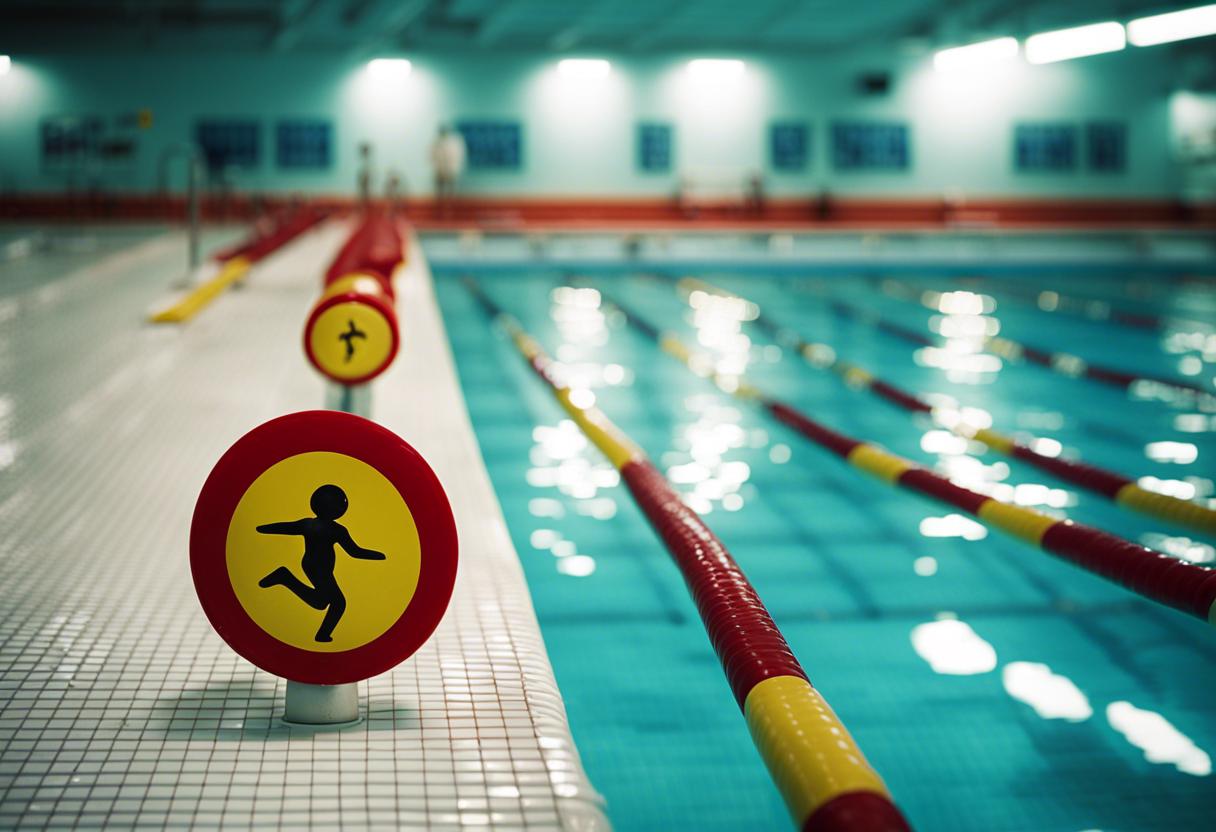China’s Olympic swim team has been in the spotlight due to a doping scandal. In the weeks leading up to the Olympics, where over 10,500 athletes from 184 nations converge in Paris, questions were raised about the practices of China’s swimmers. It seems these suspicions were not unfounded as 23 of the nation’s elite swimmers tested positive for the prohibited substance, trimetazidine (TMZ), at an internal event in Shijiazhuang, located south of Beijing, in early 2021, seven months prior to the rescheduled Tokyo Olympics.
China’s anti-doping agency conducted an investigation into the matter and concluded that the swimmers were innocent victims of TMZ contamination in the hotel kitchen. This conclusion was upheld by the World Anti-Doping Agency (Wada) and World Aquatics, neither of whom publicised the issue.
A number of those implicated in the controversy achieved victory in Tokyo, earning three gold medals. Furthermore, 11 of these involved swimmers have been chosen for the Paris team including Zhang Yufei, a gold medallist in both the 200m butterfly and women’s 4x200m freestyle relay in Tokyo and also won two silver. Other notable team members include men’s 200m individual medley Olympic gold medallist Wang Shun, 200m breaststroke world-record holder Qin Haiyan, and Yu Yiting, who bagged a World Championship bronze in the women’s 200m individual medley earlier this year, a category in which Ireland’s Ellen Walsh will be a competitor in Paris.
In early January 2021, a local hotel in the Chinese city of Shijiazhuang played host to the 39-member swim team, 23 of whom would later test positive for TMZ. A subsequent inquiry by the Chinese highlighted food and atmospheric pollution as the cause, pointing out that the illicit drug had found its way into spice containers in the hotel kitchen and various air ducts.
Wada agreed with the Chinese investigation’s findings, indicating that due to the pandemic, it was unable to send its own team to China. In the case of the involved Chinese swimmers, Wada deemed the contamination theory creditable, stating the findings were unchallenged due to lack of concrete scientific evidence to the contrary.
This entire scenario unfolded in April this year, spurred on by a series of exposed emails which lead to both the New York Times and German broadcaster ARD unveiling the story. This sparked immediate backlash against Wada, the Chinese anti-doping authority and World Aquatics. The latter, in 2021, opted not to push the issue further.
Wada identified environmental contamination as a probable cause and chose not to treat it as a violation of anti-doping rules (ADRV), notwithstanding earlier notable incidents of TMZ positives in Chinese swimming, particularly in the case of Sun Yang, the 2012 Olympic 1,500m winner. Yang was barred for three months in 2014 after testing positive for TMZ and also served a four-year ban for a separate doping infringement.
The US Anti-doping chief, Travis Tygart, dubbed this decision as a “betrayal of clean athletes”, and expressed worry over a possible cover-up.
The full explanation behind Wada’s consent to the contamination allegations hasn’t been disclosed by them yet. This could have led to a temporary suspension with open disclosure at the time.
What perks do athletes gain from using TMZ?
TMZ, which can only be acquired by prescription in either pill or powder form, is employed to ward off angina attacks and is also used in treating heart disease. Classified as a “metabolic modulator”, it’s prohibited by Wada in and out of competition. Known for improving endurance and recovery time post-training, TMZ is not typical household substance.
Wada did conceded that it wasn’t in agreement with all the factors of China’s investigation into the TMZ positives, from a largely technical perspective. However, they eventually acquiesced to the contamination theory as the TMZ amounts were low and the athletes hailed from varied regions of China. In contrast, at another team hotel, none of the swimmers displayed a positive result.
Is strict athlete responsibility imposed even in contamination cases, and why wasn’t this adhered to?
Not exactly. Wada asserted that their regulations call for a “compulsory temporary suspension” for “non-specified substances such as TMZ”. Yet, it highlighted that “even in the case of mandatory provisional suspensions, exceptions exist, with one being specific to likely contamination situations.”
Eric Cottier, a retired prosecutor from Switzerland, has been appointed by Wada to investigate the treatment of the case with an assurance that the findings will be submitted before the start of the Games. Additionally, Wada has accused the United States of turning the issue into a political argument, with their incessant allegations solely directed at China.
The question arises, how did Michael Phelps and Allison Schmitt become part of this controversy?
During a hearing at the US House Committee, called “Exploring Anti-Doping Measures Ahead of the 2024 Olympics,” which took place last week on Capitol Hill, Phelps expressed his disillusionment with Wada. Phelps, celebrated for his record 23 gold Olympic swimming medals, stressed his belief that Wada’s attempts of reform have failed. He claims persistent systemic issues adversely affect the integrity of worldwide sports and the rights of athletes to engage in fair competition.
Schmitt, a member of the US squad that was defeated by China in the medley relay in Tokyo, communicated her scepticism, knowing that the Chinese relay team had no suspended players. She passionately called for accountability of Wada and the international anti-doping framework on behalf of US athletes.
So what’s the sentiment among the competing swimmers as they prepare for Paris? Phelps seemed to be echoing the sentiments of many Olympic swimmers when he conveyed the potential impact on several of his “close friends” due to the decision to permit Chinese swimmers, who had failed drug tests in 2021, to participate in Tokyo. He commented that many are likely to dwell on the ‘what ifs’ for the remainder of their lives.
This leads to a crucial question: What happens if more Chinese swimmers secure medals in Paris?

